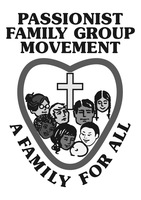In the August edition of the Marist Messenger Fr. Cahill wrote, “Like all families situations change and so it is with our Church family” He also made the comment, “A Parish should be our second family” I am taking these comments out of context purely because they raised the question in my mind, what is the relationship between the family at home and the Parish community?
If it can be accepted that the Church is an organisation in decline, both by numerical strength and by influence in society, it will be acceptable that changes have to be made in order to support the family as the primary teaching unit.
All the indicators are that those changes need to be such as will strengthen the teaching authority and ability of the family to pass on the values basic to the Christian Catholic faith. It is reasonable to claim that neither the parish nor the school are achieving this at present based on the factors mentioned above.
Jesus was born of a woman into a regular family as it was known at the time. She knew the joys and sacrifices of being a mother, a woman who knew the importance of family. God chose this situation for His son and as such it should rate as a leading example of where we can best find the Spirit of Jesus and the environment for our children to learn.
If that is the reality, does the present structure of church/parish really reflect what appears to be the underlying principle of family, as demonstrated by that family; as being the place where we should really meet Jesus?
It seems the church has taken the concept of the family as the core learning and teaching environment and concentrated it into the Liturgy of the Word , the school, or a multitude of study courses, all events which reduce the real family into separate segmented parts, even in the Mass the children are often removed. Has the Church no confidence in the real family? Has the action or inaction of Church caused the family to become so weak as to be almost ineffectual in developing the faith of its members?
Ezekiel 34. 1-11
So is there even the remote possibility that the family could once again become the central focus where faith development takes place? Where the sheep are safeguarded, nurtured and nourished by the shepherd.
Father Peter McGrath CP, Founder of the passionist family Group Movement would respond with a resounding ‘YES’ I’m sure.
On www.pfmg.org/founder3.htm Fr McGrath makes the following statement.
“The question is simple. The answer is simple. The implications are immense. A well –functioning Family Group is an extended family. It provides nurturing and supportive environment for all its members to grow as Christians. In doing so, the Family Group gives support to each family within it. Whether the family be dual, solo, blended or whatever, it does this by providing a network of relationships.
Fr McGrath continues: “A Family Group is more than the sum of its parts. It is a basic building block of Christian Community, providing a sound foundation for the life of the parish.
The Family Group answers the need for community- a sense of belonging. It is out of this sense of belonging that the members of the Family Group willingly participate in the life of the parish family and beyond. It is true to say, “‘One does not fully participate until one feels they belong” When people are at home in a Family Group their gifts and graces are revealed. Then they use them within the parish community and, beyond the parish community, in Christian mission.
Christian education occurs in a family Group. Barriers are broken down. Families are freed to tell their stories. They discover they have the same challenges. They also share the same values. They learn from each other There is heartfelt prayer in a loving and supportive Family Group. For the most part, such prayer is very informal and influenced by the rhythm of life. At the heart of this prayer is the Eucharist, whether the intimate Home Mass or the parish celebration.
Hence, it is obvious that a Family Group is far more than social. In fact a Family Group is INCARNATIONAL. The Spirit of Christ, as St Paul says, living in the hearts of its faithful members, is able to work wonders. People are accepted, understood and forgiven. There is a true reconciliation. People break bread at a common table. All the sacraments of the Church from Baptism to the Anointing of the Sick, find a place within the Family Group. The family Group is CHURCH”
It was not the intention of this writer to promote, first and foremost, the Passionist Family Group Movement but rather to explore the fact that changes in the Church are desperately needed. Being aware of the Movement but not actively engaged in it, it was with considerable pleasure the PFGM website opened to reveal a deeper understanding of the problem and one avenue for refocussing on safeguarding, nurturing and nourishing the family. Does the Church have the will to do this?
by David Bernie, who is involved in the Hamilton Diocese in Catholic Eductaion
